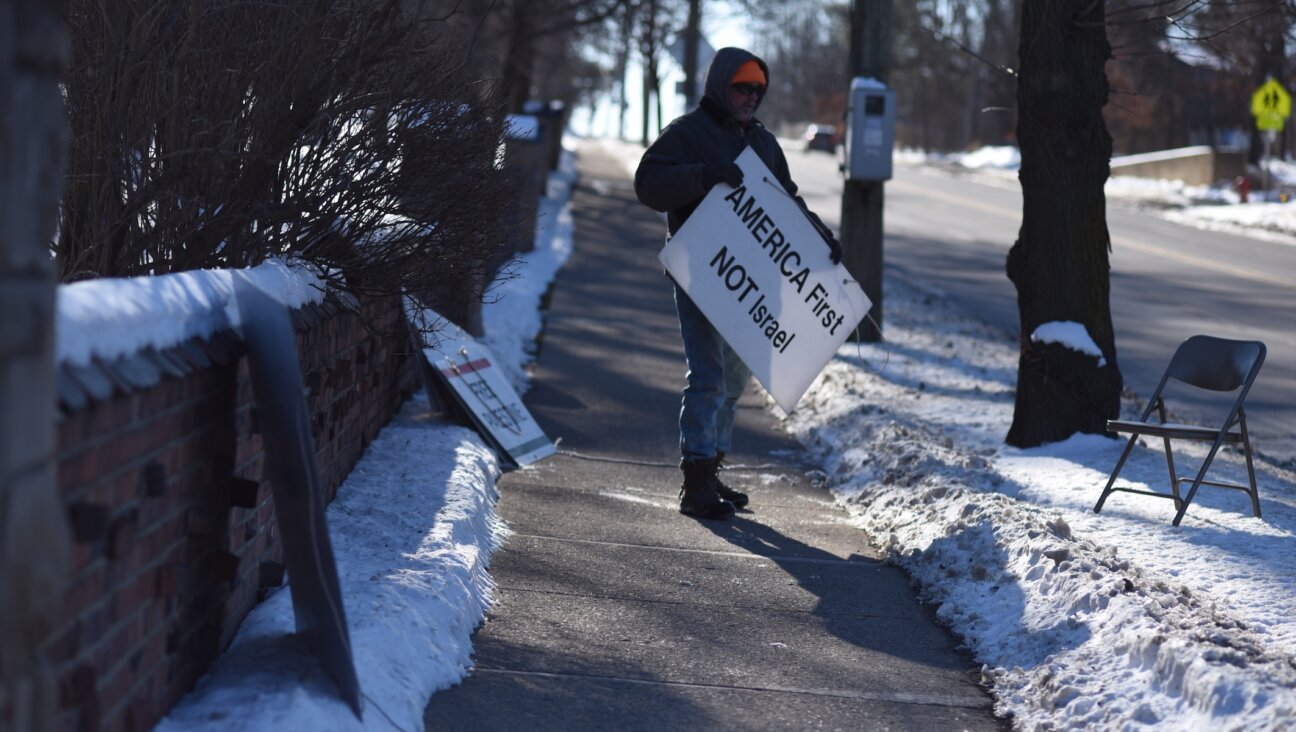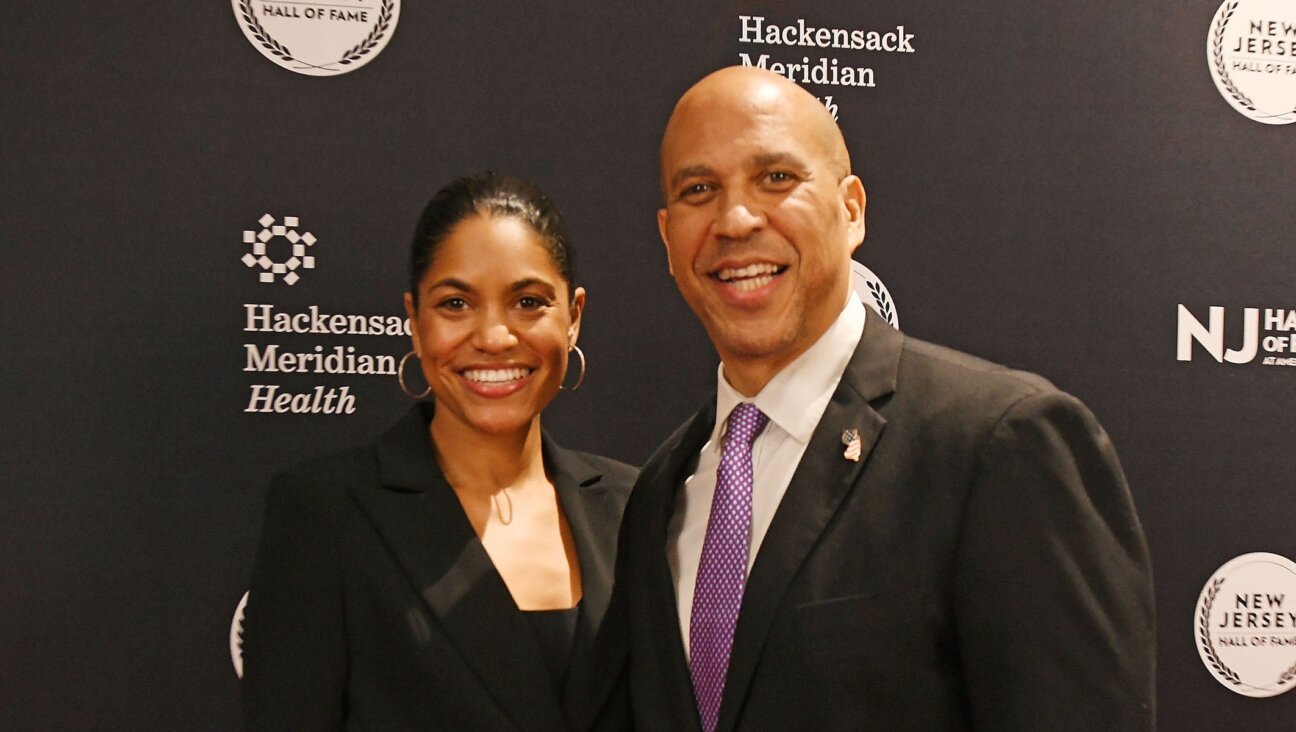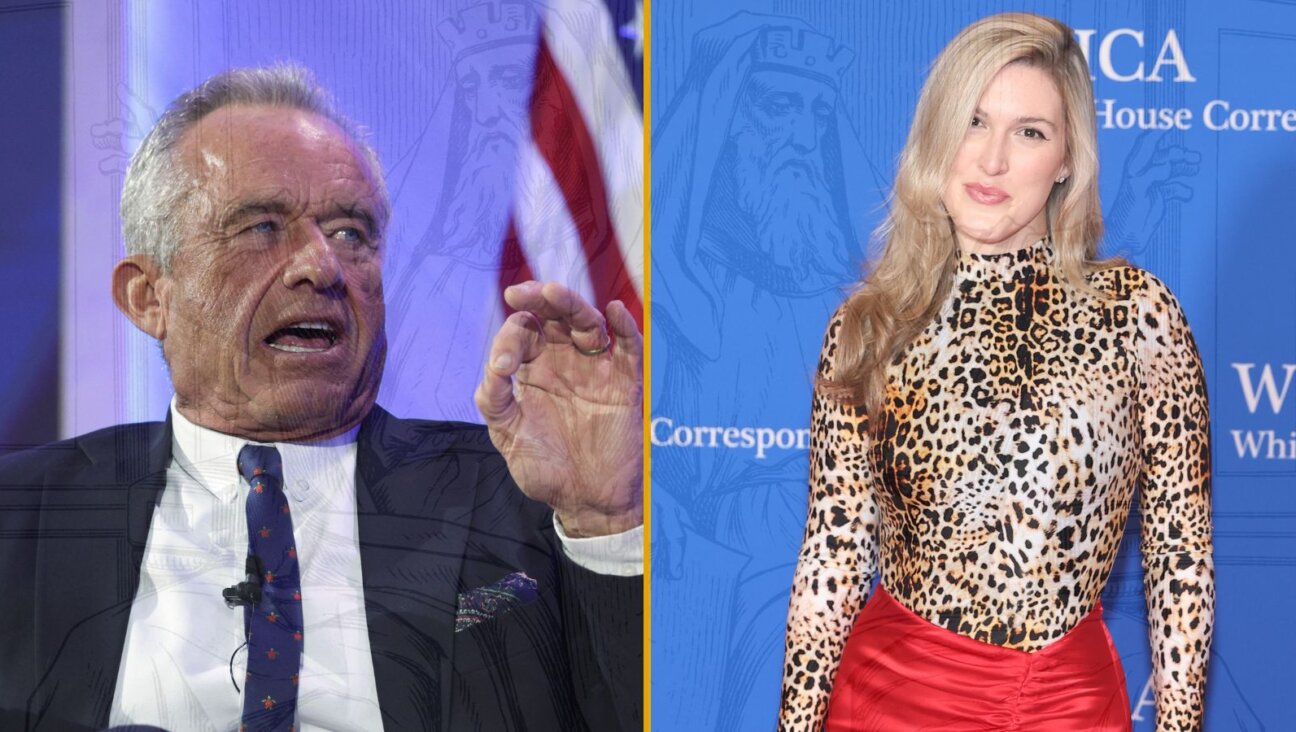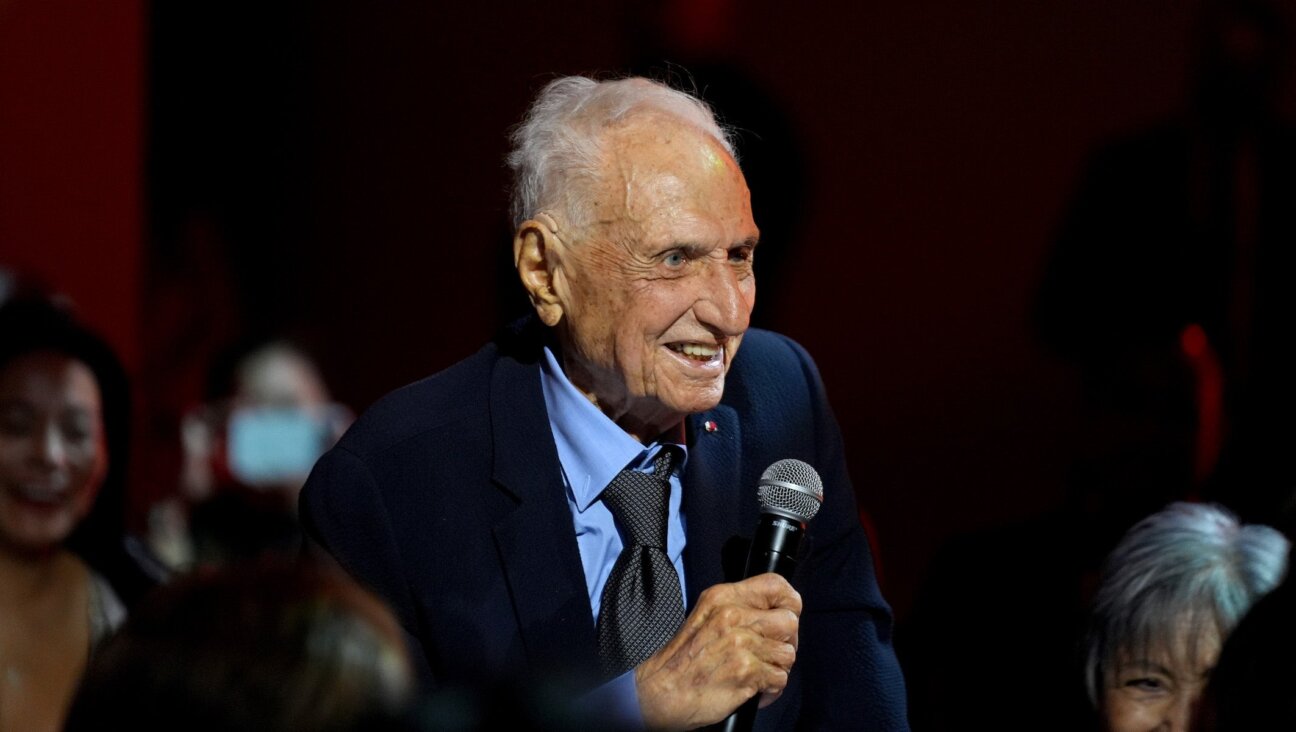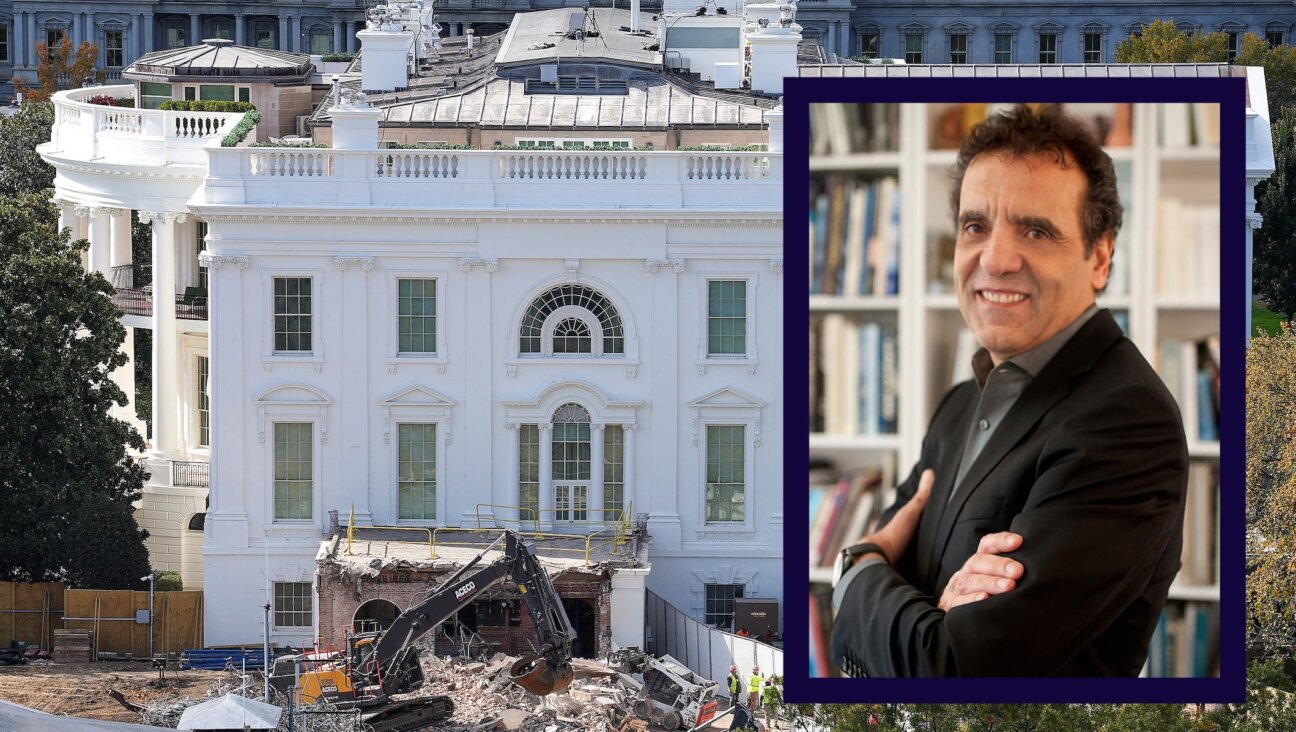What Will Bernie Sanders Jewish Backers Do Now That the Primary Battle Is Over?

Image by Getty Images
WASHINGTON — As the door slams shut on Bernie Sanders’s run for the White House, Jewish Democrats are seeking ways to bring his progressive supporters back into the fold.
And the task could be easier than expected, thanks to one person – Donald Trump.
“In a way, Trump’s outrageousness is uniting us,” said Isaac Luria, a progressive Jewish activist who supported Sanders. Luria said that when the process is concluded, he will support Hillary Clinton and “work my heart out for her.”
Trump’s latest set of comments, putting into question the impartiality of a judge of Mexican heritage and of Muslim-Americans, drew wall-to-wall condemnation, even among Trump’s fellow Republicans.
For progressive Jews seeking their footing after the demise of the Sanders presidential campaign, the comments were also a sign that party infighting between supporters of Clinton and of Sanders is a luxury they can no longer afford.
“I have hope that people will understand how big the threat is on our country with having Donald Trump as president,” said Stosh Cotler, CEO of Bend the Arc, a progressive Jewish advocacy group focused on domestic issues. “We have people who support Bernie and people who support Clinton, and I hope we can all put our weight behind the nominee,” Cotler said. She noted that the group’s PAC Bend the Arc Jewish Action will endorse whichever candidate is chosen as the Democratic nominee.

Bernie Sanders addresses supporters in California. Image by Getty Images
Clinton clinched the Democratic nomination June 6, when The Associated Press reported that a tally of all pledged delegates and super-delegates brought her over the 2,383 threshold needed to secure the nomination.
She extended that lead with wins in delegate-rich New Jersey, as well as New Mexico and South Dakota, while Sanders chalked up wins in Montana and North Dakota.
Clinton was running ahead by about a 15% margin in California, and CNN declared her the winner of the richest delegate prize early this morning.
But Sanders showed no interest in ending his upstart candidacy, telling cheering supporters in California that he would go on campaigning through next Tuesday’s primary in the District of Columbia and carry his political crusade – although not necessarily his campaign – to the convention in July.
“We are going to fight hard to win the primary in Washington DC,” he said. “And then we take our fight for social, economic, racial and environmental justice to Philadelphia, Pennsylvania.”
Sanders and his campaign rejected the claim that the race was over, arguing that super-delegates, who are not bound by their state’s vote, should not be counted until they actually cast their vote at the party’s convention.
Bend the Arc’s first national conference, held in Washington from June 6 to June 9, served as a gathering of Jewish progressives seeking ways to empower action on social justice agenda items. But while the goals of the organization and its members seem to align squarely with those articulated by Sanders throughout his yearlong presidential campaign, the internal Democratic debate between Sanders and Clinton, which has torn the party for months, was hardly an issue.
“People have moved on,” one activist said, speaking in between sessions. “A lot of us are already looking at what we can do in the general election.”
As a group, Bend the Arc is planning a massive anti-Trump mobilization that will carry on until November. On June 21 the group will hold vigils across the country, in which activists will light traditional Jewish yahrzeit candles and carry posters reading “We’ve seen this before.” The date was not chosen at random; June 21 marks the day three civil right activists, named James Chaney, Andrew Goodman and Michael Schwerner, were murdered in Mississippi. “We believe that just like then, this is a moment in which our democracy is in danger,” Cotler said.
While a strong anti-Trump message could easily satisfy many Jewish Sanders’s supporters who are now making their way to the Clinton camp, there is still a major foreign policy sticking point: the Israeli–Palestinian conflict.
Sanders, to the delight of many progressive backers in the Jewish community, was the first major candidate to forcefully push forward an agenda questioning the Democratic Party’s pronounced pro-Israel slant.
Sanders has accused Israel of using excessive force against Palestinians in Gaza, and called on the United States to adopt a more evenhanded approach to the Israeli-Palestinian conflict. His appointees to the Democratic Party’s platform committee expressed their wish to add into the document recognition of the Palestinian people’s right for an independent state alongside Israel and an acknowledgement of Israel’s occupation of Palestinian land.
“Now that it’s part of the conversation, we know things are going to change,” said Michelle Weiser, a Boston-based activist of If Not Now, a Jewish group seeking to recognize Palestinian rights in Jewish and political discourse. “I’m appreciative of how Bernie’s campaign has allowed us to open the conversation on justice for Palestine.”
But with Clinton clinching the nomination, it becomes all the more difficult to see how Sanders and his backers can actually shift the Democratic Party’s platform on Israel.
“At the end of the day, the platform will reflect Hillary Clinton’s well-established views on Israel,” Democratic strategist Aaron Keyak said. “Not everyone likes them, but the platform is going to line up with her views.”
Sanders supporters may find help in their battle to change the party’s platform from the dovish lobby J Street, which has launched its own campaign to include new language in the platform plank dealing with Israel. The group is asking for statements supportive of Palestinians’ right to their own state, opposition to settlement expansion and recognition of Jerusalem as the future Palestinian capital, alongside disavowing of the boycott, divestment and sanctions movement, which aims to boycott Israel.
“There’s a gap between what Jewish Americans really believe and what [Democratic Party officials] think that they want,” J Street President Jeremy Ben-Ami said. “Now there’s an opportunity for the platform committee to close this gap.”
Not all Jewish Sanders supporters are ready to acknowledge that the fight to install the first Jewish socialist as the Democratic nominee is over.
Just like Sanders himself, who argued on June 6, after The Associated Press announced Clinton as the presumptive nominee, that “there is nothing to concede,” some of his Jewish supporters are also fighting back.
Daniel Sieradski, national organizer of Jews for Bernie, took to Twitter to argue against the media’s rush to crown Clinton as the winner.
“We’re sticking with Bernie until he calls it quits. We believe that even if he doesn’t win the nomination, there is plenty for him to contribute to the reshaping of the Democratic Party and its platform towards more progressive ends,” Sieradski said.
He noted that due to Federal Election Commission regulations that prohibit PACs from using the candidate’s name, “Jews for Bernie” has changed its name to “Progressive Jews PAC” and will continue supporting progressive candidates. “We’ve also begun to pivot towards defeating Trump and are pouring more energy into our project Jews Against Trump, which we hope will become a significant force over the coming months,” Sieradski said.
“Even if I don’t personally have it in me to campaign for Hillary,” Sieradski said, “I sure as hell can campaign full-throatedly against Trump.”
But for most, it is a question of timing more than of substance.
With the recognition that Sanders’s campaign has either reached, or is on its way to reaching, a dead end, progressive Jews are gathering themselves for the fight against Trump and, despite their initial inclination, for Clinton.
“It would be great if she threw a bone to Bernie supporters,” Luria said. “We just really want her to earn it.”
Contact Nathan Guttman at [email protected] or on Twitter, @nathanguttman

